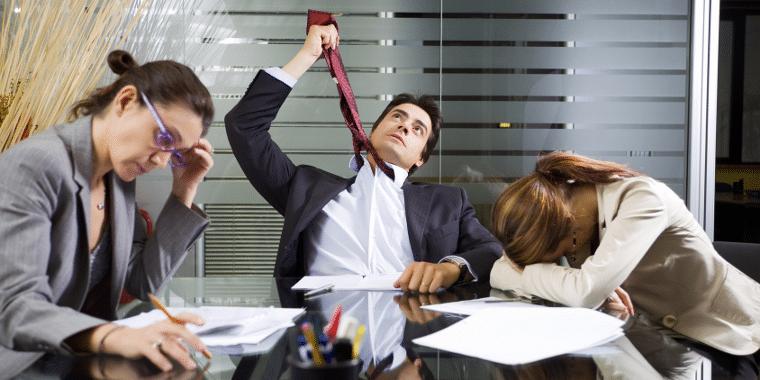It’s 3pm on a Monday afternoon and you’re slowly scrolling your way to inbox zero. After all: you have a meeting at 4pm, so you don’t have time to get anything more than that done anyway. At 3:30 you decide—screw it—it’s time for today’s fourth coffee.
Sound familiar? If so: you should take note of the following research, published in the Journal of Consumer Research, which explains why upcoming appointments make us useless at organising our time.
Think about it: How many meetings do you go to every week? Although there is nothing you can do about all that time wasted in the actual meetings, scheduling them in the mornings could really improve your overall productivity, because we perceive time differently when it comes before a task or an appointment.
How did they come to this conclusion? A series of studies demonstrated people are lazier and less efficient when they have an appointment coming up.
“We figure something might come up, we might need some extra time, even when there’s no need to do that. As a result, we do less with the available time,” said Selin Malkoc, the co-author of the study.
The results were gathered via an online survey of 198 people in which Malkoc and her colleagues asked participants to assess, both subjectively and objectively, the amount of time they had to read a book within one hour. To test the theory, half the group were told they had a friend dropping by at the end of the hour, while the other half were told they had no plans.
Those who “had a friend coming by” gave themselves ten minutes less reading time on their subjective evaluation of time. Meanwhile, in the real world, the results held up too: across a group of people asked to pick between two paid studies—a 30-minute study paying $2.50 and a 45-minute study paying $5, participants who had upcoming appointments an hour after the start of either study were significantly more likely to pick the half-hour version, even though there was plenty of time to make the later appointment either way.
This indicates if you want to work efficiently, it pays to get your appointments out of the way early, so they aren’t playing on your mind all day.
Another experiment proved we don’t get as much done when we have something looming over us. Of 158 students who had been given an upcoming lab task, those given five minutes of free time and persistently reminded of the commitment achieved less in those five minutes than those who were simply told they had five minutes of free time.”
“You don’t feel like you can get as much done when you have a task coming up soon,” Malkoc said. “The time seems shorter.”
“We feel that if we have a meeting in two hours, we shouldn’t work on any big projects. So we may spend time just answering emails or doing things that aren’t as productive.” This is why on days full of meetings we feel like we have accomplished so little, Malkoc says.
In light of this finding, you should try stacking your meetings together, she says. Or even better: schedule them all into the morning. She also recommends taking a second look at how much time you have between them—as you can probably get a lot more done than you first suspect.
RELATED: Scientists Reveal The Working Hours That Won’t Harm Your Health
